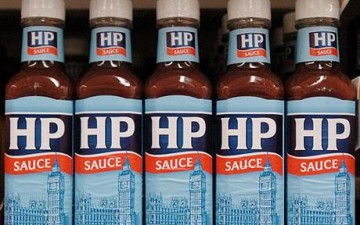 Maker of expensive printer ink, HP CEO Enrique Lores said the company’s first AI PCs will arrive in the second half of 2024.
Maker of expensive printer ink, HP CEO Enrique Lores said the company’s first AI PCs will arrive in the second half of 2024.
Lores claimed that the new PCs will be a “catalyst for market expansion” and deliver “stronger AI capabilities” than upcoming computers.
HP said that PCs will lead to growth in the market, but it will take “some time” for customers to adopt computers with AI acceleration.
Intel CEO Pat [kicking] Gelsinger has said that the chipmaker’s forthcoming Core Ultra processors, code-named Meteor Lake, will “usher in the age of the AI PC” due to their AI acceleration capabilities.
Lores said that with Intel planning to hold a formal launch event for the Core Ultra chips on 14 December will have the “widest range of PCs based on Meteor Lake’s platform,” which will become available starting in January and February as part of the company’s AI PC efforts.
He said that HP won’t brand its Meteor Lake-powered computers as AI PCs and will market its AI PCs in the second half of next year using unidentified processors from Intel and other companies.
These systems HP deems as AI PCs “will be a catalyst for market expansion,” according to Lores, “and that, we think, will double PC growth rates over the next few years.”
Lores said Meteor Lake-based PCs will “have some AI capabilities” while PCs powered by Intel and other CPU providers coming in the second half on 2024 will have “stronger AI.”
“This is where we think the customers will perceive the real value of AI, though they will start seeing some value with Meteor Lake starting in January, February,” Lores said.
For the fourth quarter of HP’s 2023 fiscal year, the company reported $13.8 billionin revenue, which was down six per cent year-over-year but five per cent higher than the previous quarter.
Lores said HP’s key growth areas, such as hybrid systems from Poly as well as commercial services and solutions, “grew two times faster at 10 per cent.”
Earnings per share for the quarter were 90 cents, which was in line with Wall Street’s expectations while the company’s revenue for the period was $40 million below analyst estimates.
HP’s personal systems net revenue was $9.4 billion, down eight per cent year-over-year. This was mainly due to a big slowdown in the commercial segment, where revenue was down 11 per cent and where HP shipped six per cent fewer units compared to a year ago. The consumer segment fared better, with revenue down one per cent and units up nine per cent year-over-year.
The company’s printing net revenue was $4.4bn, down three per cent year-over-year. This was due to a 21 per cent plummet in the consumer segment revenue, a four per cent decrease in commercial segment revenue and four per cent increase in supplies revenue.
These results contributed to an annual revenue of $53.7bn for HP’s 2023 fiscal year, which was down 15 per cent from the previous 12-month period.
“As you know this was a tough year due to demand constraints across the industry, but I am proud of the way our teams performed,” Lores said.
“We consistently improved results throughout the year. We also delivered on our structural cost savings, which is important because it allowed us to maintain our investments in innovation and growth,” he added.
HP forecasted that earnings per share will be in the range of 76 cents to 86 cents in the first quarter of its 2024 fiscal year, which began on November 1. Earnings per share for the fiscal year were expected to be in the range of $3.25 to $3.65, according to the company.





